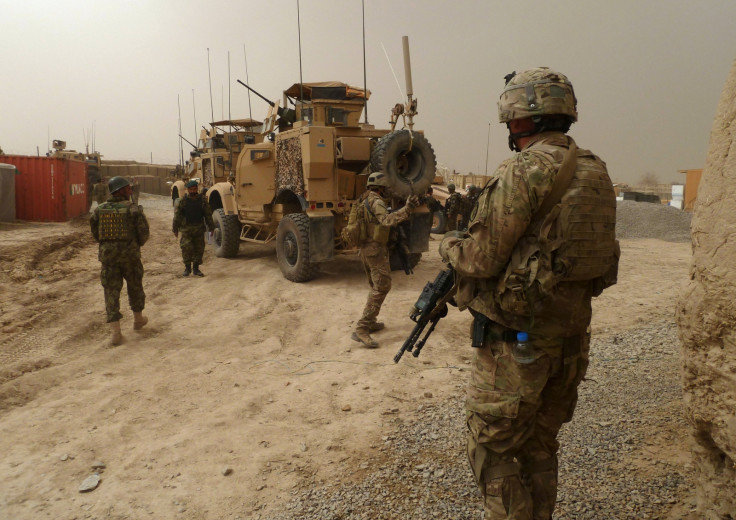Afghanistan: US Military Justice System Cements Impunity Over Civilian Killings and War Crimes

The deaths of thousands of civilians at the hands of United States and Nato forces in Afghanistan have gone uninvestigated and unpunished, largely due to a deeply flawed US military justice system, Amnesty International has said.
Focusing primarily on air strikes and night raids carried out by US forces, including Special Operations Forces, the Left in the Dark report states that war crimes have gone unanswered.
"Thousands of Afghans have been killed or injured by US forces since the invasion, but the victims and their families have little chance of redress," Amnesty's Asia Pacific Director Richard Bennett told IBTimes UK.
"The fact that US military justice system almost always fails to hold its soldiers accountable for unlawful killings has seemingly been ignored."
Amnesty has called for an overhaul of the system, which largely relies on soldiers' own accounts of their actions in assessing the legality of a given operation.
Lacking independent prosecutorial authorities, the system expects soldiers and commanders to report potential human rights violations, which could prevent a conflict of interest. It is rare that Afghans are invited to testify in these cases.
Amnesty conducted detailed investigations of 10 incidents that took place between 2009 and 2013, in which civilians were killed by US military operations. At least 140 civilians were killed in these incidents, including pregnant women and around 50 children.
In September 2012, a US aircraft dropped two bombs on a group of women collecting firewood in a mountainous area of Laghman Province in eastern Afghanistan. Seven women and girls were killed and seven more injured.
Ghulam Noor, an elderly farmer, lost his 16-year-old daughter Bibi Halimi in the attack. He and other family members of the dead, upon hearing that international forces claimed that only insurgents had been killed in the bombing, brought the women's bodies to the district capital, Mihtarlam.
"We had to show them that is was women who were killed," he said.
'They tied my legs together and beat me with a wooden stick'
Qandi Agha, a former detainee held by US Special Forces in Nerkh District in late 2012, told Amnesty of the torture sessions he endured.
"Four people beat me with cables. They tied my legs together and beat the soles of my feet with a wooden stick. They punched me in the face and kicked me, and hit my head on the floor."
Agha added that both US and Afghan forces participated in the torture sessions. He said that four of the eight prisoners held with him were killed while in US custody, including one person, Sayed Muhammed, whose killing he witnessed.
Formal criminal investigations into civilian deaths in Afghanistan are extremely rare. Amnesty says it is aware of only six cases since 2009 in which US military personnel have faced trials.
Under international humanitarian law, not every civilian death occurring in armed conflict implies a legal breach. However, if civilians appear to have been killed deliberately or indiscriminately, or as part of a disproportionate attack, the incident requires a thorough and impartial inquiry.
In the majority of cases, Amnesty found, US military or Nato spokespeople would announce an investigation would be carried out, but refuse to release further information on its progress.
Speaking to IBTimes UK, Olof Blomqvist, of Amnesty International's Asia-Pacific Department, said the report also documents a lack of transparency on investigations and prosecutions.
"We're talking about compelling evidence of war crimes here that have seemingly been ignored and left uninvestigated," he said. "But it is impossible to know for sure what investigations have been carried out, given the lack of transparency in the US military.
"The timing of this report is significant. With international troops handing over to Afghan forces, there is a real risk of the US and NATO leaving behind a legacy of resentment and impunity unless they start taking accountability seriously.
"It was remarkable how the families we talked to were desperate for justice more than anything else."
© Copyright IBTimes 2024. All rights reserved.






